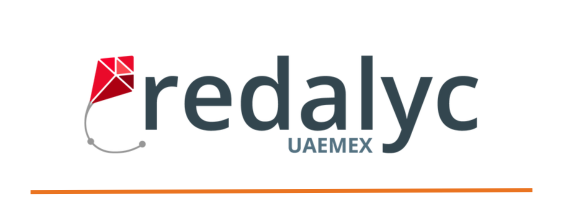Knowledge management in the twenty-first century
DOI:
https://doi.org/10.26439/interfases2014.n007.147Keywords:
knowledge management, use of advanced technologies, organizational decision makingAbstract
In the world, there is a spectacular development in the knowledge management, for example the conferences IC3K; in addition, the prestigious Massachusetts Institute of Technology relies on the MIT Center for Collective Intelligence to conduct research on how ICTS are changing the way people work; among others; then, an adequate knowledge management leads to create the conditions for the organization to learn, with different approaches, from the provision of timely information to systems that allow to solve complex problems; it is for this reason that they seek to create new ways to use resources and to achieve the development of systems aligned to new processes that allow us to improve the productivity, efficiency and effectiveness of the organizations, gaining a sustainable competitive advantage. This article presents the models and strategies that allow you to use the technology trends to develop new systems that improve the productivity and organizational efficiency.
Downloads
References
Alavi, M., & Leidner, D. (2001). Knowledge management and knowledge management systems: conceptual foundations and research issues. MIS Quarterly, 1(25), 107-136.
Bernuy, A. (2005). Estrategias para el aprendizaje colaborativo y la transferencia efectiva del conocimiento. Ponencia presentada en el III Congreso Internacional de Científicos Peruanos. Universidad Nacional Agraria La Molina, realizado del 27 al 30 de agosto de 2005. Recuperado de http://eventos.spc.org.pe/cicp2005/papers/0012/Paper%20II%20AugustoBernuy%20rmcpperu2005%20-%20Estrategias%20Apendiza.pdf
German Research Center for Artificial Intelligence. (s. f.). http://www.dfki.de/web/research/km.
IC3K. (s.f.). http://www.kmis.ic3k.org/
Itainnova (3 de octubre de 2014). El proyecto europeo KM2.0 dispone de acciones formativas gratuitas sobre gestión del conocimiento para pymes. Recuperado de http://itainnova.es/proyectos/el-proyecto-europeokm2-0-dispone-de-acciones-formativas-gratuitas-sobre-gestion-delconocimiento-para-pymes
Massachusetts Institute of Technology - MIT Center for Collective Intelligence. (s.f.). http://cci.mit.edu/about_mitcenter.html
Michán, M. (18 de enero de 2011). Las acciones de Apple caen un 9.7% en Europa tras la noticia de la retirada temporal de Steve Jobs. [Web log post]. Recuperado de http://www.applesfera.com/apple/las-acciones-de-apple-caen-un-97-en-europa-tras-la-noticia-de-la-retirada-temporal-de-steve-jobs
Paniagua, E. (Coord.). (2007). La gestión tecnológica del conocimiento. Murcia, España: Universidad de Murcia/Editum.
Reuters (10 de junio de 2011). Acciones de Apple bajan cerca de 1% tras fallecimiento de Steve Jobs. Recuperado de http://www.americaeconomia.com/economia-mercados/finanzas/acciones-de-apple-bajan-cerca-de-1-tras-fallecimiento-de-steve-jobs
Saiz, J. & Olalla, B. (2010). Gestión del conocimiento y sistemas de calidad en los clusters de empresas familiares. Revista EAN, 68, 70-85.
Salinas, J., De Benito, B., Marín, V., Moreno, J., & Morales, M. (2010). Herramientas y sistemas de gestión del conocimiento para el desarrollo de metodologías centradas en la colaboración y el intercambio. Ponencia presentada en el XIII Congreso Internacional Edutec 2010: E-Learning 2.0: Enseñar y Aprender en la Sociedad del Conocimiento. Bilbao, realizado del 3 al 5 de noviembre de 2010. Recuperado de http://gte.uib.es/pape/gte/sites/gte.uib.es.pape.gte/files/Herramientas%20y%20sistemas%20de%20gestion%20del%20conocimiento%20para%20el%20desarrollo%20de%20metodologias.pdf
Siemens. (2014). Industria 4.0, La cuarta revolución industrial. Recuperado de https://www.swe.siemens.com/spain/web/es/home/sostenibilidad/innovacion/Pages/industria_4.0.aspx
University of London. (2012). Knowledge management. Recuperado de http://www.londoninternational.ac.uk/sites/default/files/knowledge-managementsample-study-guide.pdf
Downloads
Additional Files
Published
Issue
Section
License
Authors who publish with this journal agree to the following terms:
Authors retain copyright and grant the journal right of first publication with the work simultaneously licensed under an Attribution 4.0 International (CC BY 4.0) License. that allows others to share the work with an acknowledgement of the work's authorship and initial publication in this journal.
Authors are able to enter into separate, additional contractual arrangements for the non-exclusive distribution of the journal's published version of the work (e.g., post it to an institutional repository or publish it in a book), with an acknowledgement of its initial publication in this journal.
Authors are permitted and encouraged to post their work online (e.g., in institutional repositories or on their website) prior to and during the submission process, as it can lead to productive exchanges, as well as earlier and greater citation of published work (See The Effect of Open Access).
Last updated 03/05/21






